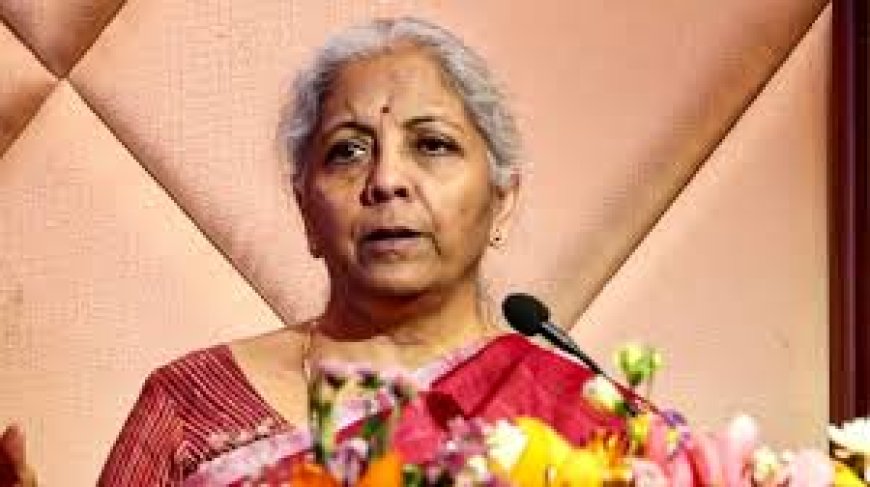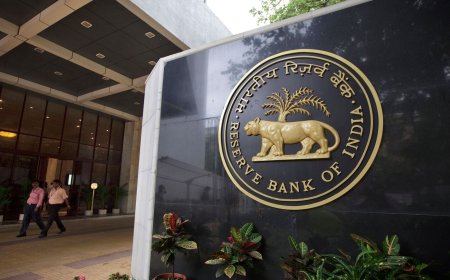FM Sitharaman calls for MDB reforms and 'fairer' credit rating systems at UN Conference
At a UN conference, India’s Finance Minister Nirmala Sitharaman called for reforming Multilateral Development Banks and criticized unfair credit rating systems, urging inclusive financial governance.

New Delhi/Geneva, July 1, 2025 —
Union Finance Minister Nirmala Sitharaman made a strong pitch for comprehensive reforms in global financial institutions at the United Nations’ Third International Conference on Financing for Development, held in Geneva on Monday. She emphasized the urgent need for transformation in Multilateral Development Banks (MDBs) and a “fairer, transparent” global credit rating system, highlighting how outdated financial structures are hindering the progress of emerging economies.
Sitharaman’s remarks come at a time when developing nations are seeking greater voice and equity in international financial systems, especially amid rising debt levels, climate financing needs, and uneven post-pandemic recovery trajectories.
“Outdated MDB Structures Must Evolve”
Speaking at the high-level plenary session, Sitharaman underlined that the current operational and capital frameworks of MDBs — such as the World Bank and the IMF — were established in a “different era” and are no longer adequate for present-day global challenges.
“The Multilateral Development Banks must evolve from being mere lenders to becoming enablers of sustainable, inclusive development,” Sitharaman stated. “Their capital structures and governance must be more responsive to the needs of the Global South.”
India has been a vocal advocate for MDB reform, calling for increased concessional financing, expanded lending capacities, and greater representation for low- and middle-income countries on their boards. Sitharaman pointed out that without reform, MDBs risk becoming less effective in addressing crises like climate change, pandemics, and geopolitical conflicts.
Push for Transparent Credit Rating Standards
In addition to MDB reform, Sitharaman sharply criticized the role of international credit rating agencies, which she said “often penalize” developing countries due to rigid frameworks and subjective assessments.
“There needs to be a serious re-evaluation of the methodologies employed by credit rating agencies. Developing countries are often subject to ratings that do not reflect economic fundamentals but rely on outdated or biased metrics,” Sitharaman noted.
India, which has consistently questioned the objectivity of major credit rating firms like Moody’s, S&P, and Fitch, believes that the current system can deter long-term investments in emerging markets. Sitharaman called for a “more accountable and inclusive” global credit rating regime, supported by multilateral consensus.
Expert Views: Growing Global Support for Reform
Financial experts and policy analysts echoed Sitharaman’s concerns, saying the call for MDB reform and better credit rating mechanisms is gaining global traction.
Dr. Rajat Kathuria, Senior Fellow at ICRIER, said,
“Emerging economies like India are pushing for a voice that aligns with their economic size and contribution to global growth. Reforming MDBs is not just a regional demand—it’s a global imperative now.”
Similarly, Meera Sanyal, former banker and economic advisor, emphasized,
“A fair credit rating system will unlock capital flows for developing nations. The current asymmetry creates unwarranted capital costs that affect sustainable development goals.”
Global Context: A Financial System Under Pressure
Sitharaman’s statements arrive in a global context marked by:
-
Mounting sovereign debt, especially in the Global South.
-
Tight monetary conditions driven by persistent inflation in advanced economies.
-
Urgent calls for climate financing estimated at over $2 trillion annually.
-
Growing consensus for restructuring the Bretton Woods institutions.
India’s position is also significant as it assumes a leadership role in the Global South, using multilateral forums such as G20, BRICS, and the SCO to build coalitions that push for financial inclusiveness.
Investor Outlook: Emerging Markets in Focus
The financial community is watching these developments closely. Calls for MDB reform and rating transparency could improve investor sentiment in emerging markets by:
-
Lowering sovereign borrowing costs.
-
Enhancing private capital participation.
-
Encouraging long-term infrastructure investment.
-
Reducing risk premiums on government bonds.
Analysts at HSBC Global Research noted in a post-conference note,
“Institutional reforms, if implemented, would be a game-changer for global capital markets. India’s continued advocacy could influence how rating frameworks are restructured in the future.”
Looking Ahead: From Advocacy to Action
While Sitharaman’s speech struck a strong chord, translating advocacy into policy change will require sustained diplomatic effort and coordination. With support growing among African, Latin American, and ASEAN nations, the momentum for systemic change in MDBs and credit rating regimes appears to be building.
India is expected to continue using international platforms to push for these reforms, especially as it eyes a larger role in institutions like the IMF and World Bank.
“Our goal,” Sitharaman concluded, “is to make the global financial architecture more equitable, resilient, and future-ready.”
What's Your Reaction?
 Like
0
Like
0
 Dislike
0
Dislike
0
 Love
0
Love
0
 Funny
0
Funny
0
 Angry
0
Angry
0
 Sad
0
Sad
0
 Wow
0
Wow
0












































































